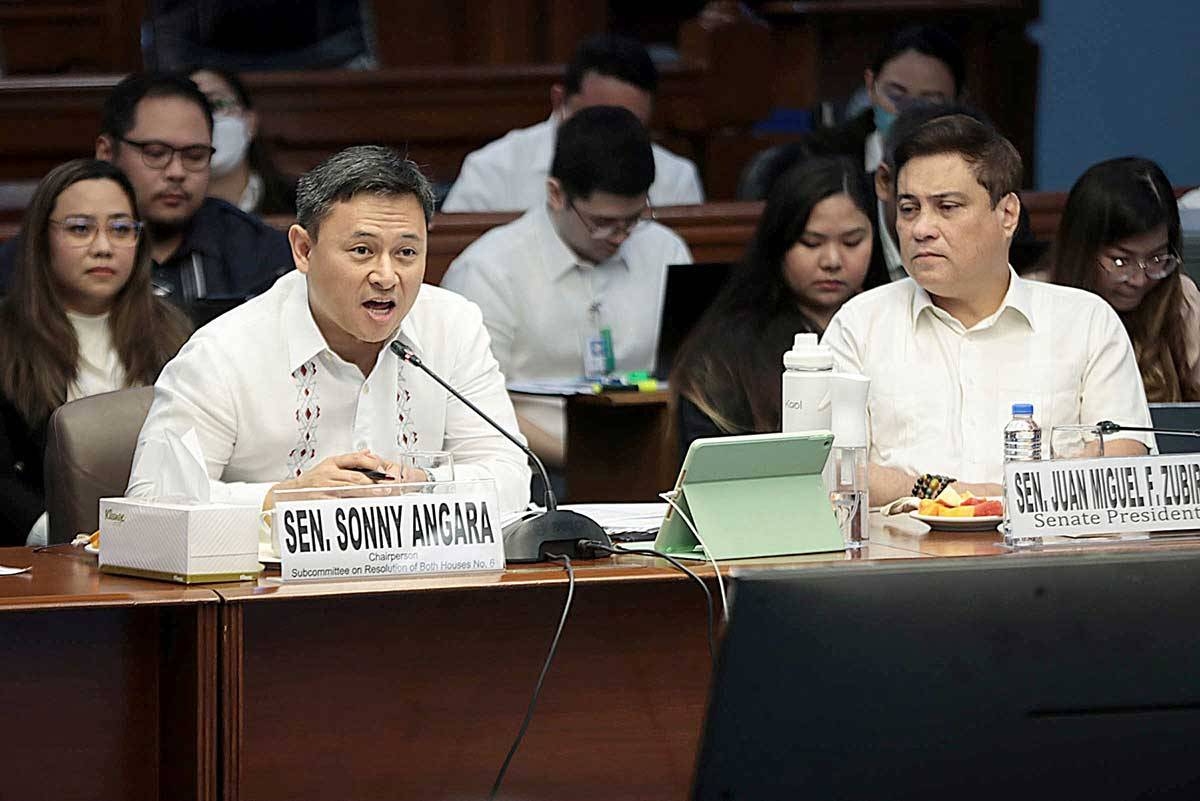Senate President Juan Miguel “Migz” Zubiri has announced that the Senate will not impose a deadline for amending the economic provisions of the Constitution. In a public hearing led by Sen. Juan Edgardo “Sonny” Angara, the Senate Subcommittee on Constitutional Amendments and Revision of Codes discussed Resolution of Both Houses (RBH) 6, which focuses on limiting the amendments to economic provisions.
Zubiri emphasized the importance of careful deliberation and ensuring the best possible outcome for the people. He stated that the proposed revisions should be discussed not only with the learned luminaries but also with various sectors that will be affected by the amendments.
While acknowledging the clamor from certain sectors to revisit the Constitution, Zubiri emphasized that rushing such an important matter would be counterproductive. He highlighted the need for extensive study and thoughtful consideration, cautioning against treating it like any other regular bill that is hastily approved without due diligence.
Zubiri entrusted the timeline of the discussions to Sen. Angara, emphasizing the importance of engaging with all members of society and different sectors affected by the proposed amendments. He urged everyone to rise above the noise and focus on the work at hand, ensuring that the Senate’s decisions prioritize the best possible outcome for the country as a whole.
Separate Voting Proposal by Sen. Padilla
In a separate development, Sen. Robinhood Padilla filed Resolution of Both Houses 7, proposing that the Senate and the House of Representatives vote separately when amending the 1987 Constitution. Padilla’s resolution aims to amend Section 1 of Article XVII, which currently allows for amendments to be proposed by Congress “by a vote of three-fourths of both Houses in joint session assembled, voting separately; or a constitutional convention.”
Padilla highlighted the need to clarify the manner of voting in order to align with the framers’ intention to adopt a bicameral legislature. He emphasized the importance of leaving no room for interpretation, as past disputes between the Senate and the House of Representatives have arisen due to differing voting methods.
Addressing the need for clarity on the voting process, Padilla suggested that resolving this issue should take precedence before tackling other aspects of amending the Constitution. He expressed support for amending the economic provisions to remove obstacles to progress, citing the Philippines’ low ranking in the Foreign Direct Investment (FDI) Attractiveness Scorecard in 2020.
Moving Forward with Deliberation and Clarity
The Senate’s commitment to a deliberate approach to amending the Constitution is commendable. By avoiding the imposition of a deadline, the Senate ensures that the amendment proposals receive the necessary time and attention they deserve. Engaging with various sectors and society at large will provide a comprehensive perspective that takes into account the diverse interests and concerns of the people.
Sen. Padilla’s proposal to vote separately aligns with the need for clarity and consistency in the amendment process. By resolving the issue of joint or separate voting, Congress can move forward with a unified understanding of the procedures involved in amending the Constitution.
As the Senate continues its discussions and deliberations, it is crucial to prioritize the best interests of the country as a whole. By filtering out the noise and focusing on the work at hand, the Senate can ensure that the amendments to the Constitution serve the greater good and contribute to the progress and development of the Philippines.
In conclusion, the Senate’s commitment to a thorough and thoughtful approach to constitutional amendments, along with Sen. Padilla’s proposal for separate voting, demonstrates a dedication to transparency, clarity, and the best possible outcome for the country. As these discussions progress, it is essential to keep the interests of the people at the forefront and work towards a Constitution that reflects the needs and aspirations of all Filipinos.
Note: The content has been revised to enhance readability, provide insights, and contextualize potentially unclear parts for an international audience.
Source: The Manila Times








